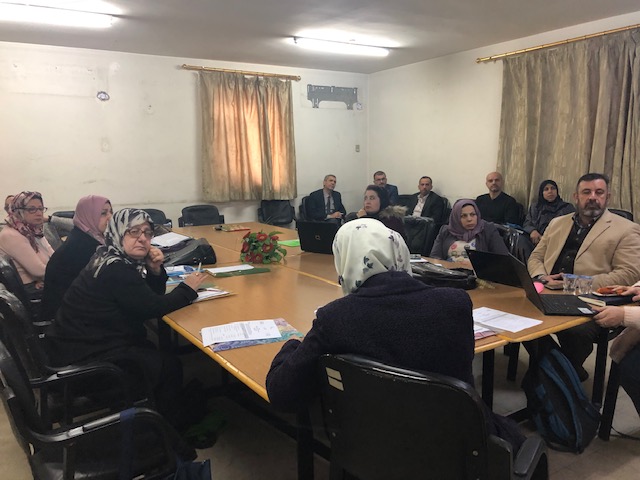 Baghdad 10 January 2019 – A midterm review of Iraq’s national reproductive, maternal, newborn, child and adolescents’ health strategy was conducted by the Ministry of Health, in collaboration with WHO, UNICEF and the United Nations Population Fund in Iraq in a workshop held on 2‒3 January 2019 in Baghdad, which was attended by 30 officials from relevant Ministry of Health departments and representatives of United Nations agencies.
Baghdad 10 January 2019 – A midterm review of Iraq’s national reproductive, maternal, newborn, child and adolescents’ health strategy was conducted by the Ministry of Health, in collaboration with WHO, UNICEF and the United Nations Population Fund in Iraq in a workshop held on 2‒3 January 2019 in Baghdad, which was attended by 30 officials from relevant Ministry of Health departments and representatives of United Nations agencies.
The review aimed at evaluating progress in the performance of all stakeholders in achieving the goals of the strategy. The aims of the review were also to update baseline and target indicators in response to the results of the multiple indicators cluster survey (MICS-6) in 2018; review implementation and accomplishment of related activities, including financing (resource allocation and expenditures); and identify obstacles and challenges during implementation of the strategy.
WHO’s Maternal and Child Health Officer in Iraq said, “The health of women and children is the key to progress on all development goals. Investing more in their health would help build peaceful and productive societies and reduce poverty. With this vision, the country has adopted a number of policies and strategies in favour of maternal and child health, including the national reproductive, maternal, newborn, child and adolescent health strategy for 2016‒2020.”
The updated data from the 2018 multiple indicators cluster survey indicated that good progress had been achieved in reducing under 5-year-old child mortality rates and improving child nutrition indicators in comparison with MICS-4 data from 2011. Some improvement was noted in implementation of main core interventions across the continuum of care. As for immunization coverage, and in comparison between different surveys (2006, 2011 and 2018), there was no consistent trend for any antigen, but a common feature with little variation in coverage between 2006 and 2018. Fertility rates in Iraq are the highest in comparison with those of neighbouring countries.
Participants highlighted obstacles as the unstable security situation in Iraq and associated military operations in some governorates, in addition to poor resource allocation to support full implementation of planned activities. They also cited as challenges: high fertility rate, low immunization coverage, poor capacity of health care facilities, especially at the district level, maldistribution of health care personnel, stock-out of essential medicines and weak collaboration between public and private health care sectors.
For more information, please contact:
Ms Gheeda AlMayahi
Communications Officer
Email:
This e-mail address is being protected from spambots. You need JavaScript enabled to view it
Tel: +964 7827 886 765
Ms Pauline Ajello
Communications Officer
Email:
This e-mail address is being protected from spambots. You need JavaScript enabled to view it
Tel: +964 7510 101 460



